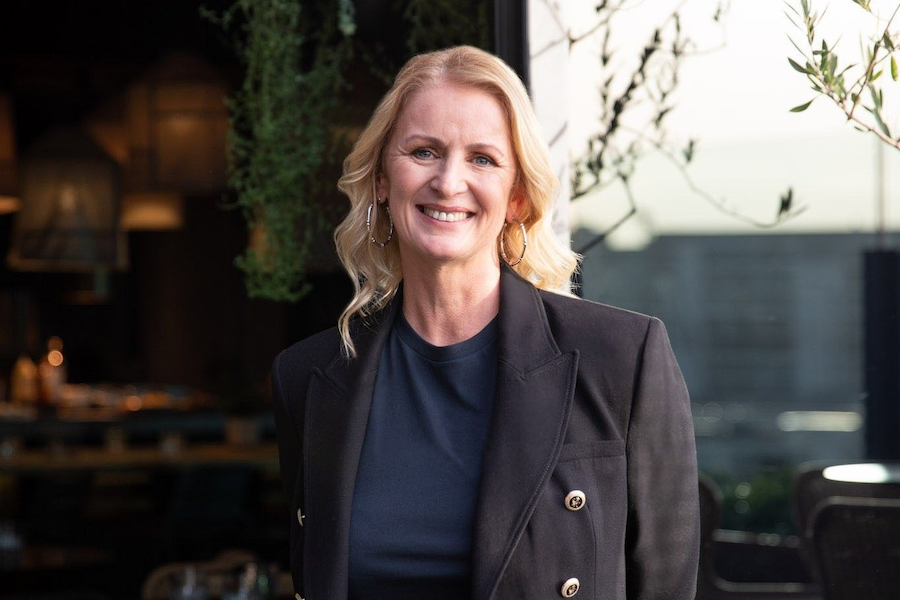Budget 2025: SMEs seek tax cuts, less red tape as confidence wavers
Pictured above: Nicola Willis talking to business owners in the Taranaki.
As the Government prepares to unveil Budget 2025 on 22 May, small businesses across New Zealand are voicing cautious optimism, but with a clear message: They want real action on tax relief and regulatory reform.
New research from Prospa New Zealand’s latest SME Sentiment Tracker Report shows that nearly half (49 percent) of SME operators lack confidence that the upcoming Budget will deliver meaningful support. The report, based on a survey of over 500 small business decision-makers, highlights a growing sentiment among entrepreneurs that more needs to be done to ease their burdens and support growth in a tough economic climate.
“Small business owners are telling us they want practical changes that would make a difference to their day-to-day operations,” says Adrienne Begbie, Managing Director of Prospa NZ.
“SMEs are the backbone of our economy, and merit targeted support to continue thriving. By removing unnecessary barriers, SMEs can unlock growth and reinvest in their people and products.”
When asked which Budget initiatives would have the most positive impact, 39 percent of SMEs pointed to tax reform, while 25 percent said they wanted to see reduced bureaucratic red tape. Government taxes were identified as the highest cost for 22 percent of respondents.
While confidence in their own businesses remains relatively strong – 57 percent rated their business health as “good” or “very good” – many are operating with tight cash reserves. Nearly a quarter (22 percent) have less than a month’s worth of cash flow buffer, and 59 percent have less than three months in reserve. Despite this, 43 percent expect profits to remain stable over the next year, and 35 percent anticipate growth.
“The reality is that SMEs are doing a great job controlling what they can. Their internal confidence is strong, but like many Kiwis, they’re keeping a close eye on broader economic signals,” says Begbie.

With persistent cost pressures – particularly in staffing, inventory, and marketing – more SMEs are exploring external funding to support growth. According to the Prospa survey, 30 percent of small business owners say they’re likely to seek external finance in the next 12 months, and 55 percent have some confidence in non-bank lenders like Prospa to meet their needs.
“Small businesses are becoming increasingly savvy about their options,” adds Begbie.
“It’s encouraging to see this shift as it shows confidence and capability is still very much alive in the SME community.”
With small businesses making up over 97% of all enterprises in New Zealand and employing more than 600,000 Kiwis, Buy NZ Made Executive Director Dane Ambler says it is essential that the 2025 Budget includes targeted initiatives to ease cost pressures, encourage innovation, and drive local consumer confidence.
“Small businesses are facing a tough economic climate – rising costs, uncertain demand, and global competition. What they need now is a Government that steps up with strategic, long-term investment in local enterprise.
“Ideally, we would like to see increased access to low-interest loans, grants, and tax relief for small businesses, especially those recovering from the impacts of inflation and global supply chain disruptions.”
Ambler says the government’s recent move to a “local-first” approach in procurement to ensure New Zealand-made products and services are given fair consideration in public spending decisions was a good start.
“Backing small businesses is not just good economics – it’s good nation-building.”
The call for meaningful reform isn’t isolated to small businesses. New research from Baker Tilly Staples Rodway, released just days ahead of the Budget, paints a broader picture of a business community hopeful – but cautious.
The firm’s nationwide pre-Budget poll found that 76 percent of businesses support a company tax cut to boost competitiveness, even as they applaud the Government’s efforts to reduce spending and red tape.
“There’s optimism, but it’s notably cautious,” says David Searle, National Chair of Baker Tilly Staples Rodway.
“Simply cutting spend isn’t enough. They’re calling for bolder action on our tax settings to help spur new investment and start growing rather than going backwards in real terms.”
While 57 percent of business respondents believe the Government is doing well managing the economy – up sharply from just 14 percent before the 2023 election – there’s still a mixed view on how effective policies have been, especially regarding foreign investment and skilled migration. Further, 42 percent think the Budget will negatively impact general wellbeing across New Zealand.
Businesses are also prioritising healthcare (65 percent), infrastructure, and crime prevention as top areas where remaining public funds should be directed. Support for increased defence spending remains weak, ranking last among 11 Budget priorities.
The Government, led by Finance Minister Nicola Willis, is expected to focus on spending restraint and targeted relief. Speaking earlier this month, Willis signaled that Budget 2025 would include some personal tax relief, but warned that fiscal room is tight due to high debt levels and inflationary pressure.
The business community will be watching closely to see if the Government delivers on its promises of lower compliance costs and smarter spending.
As Searle puts it, “To maintain business optimism, we’ll need to see something more positive and innovative, rather than more of the same”.







